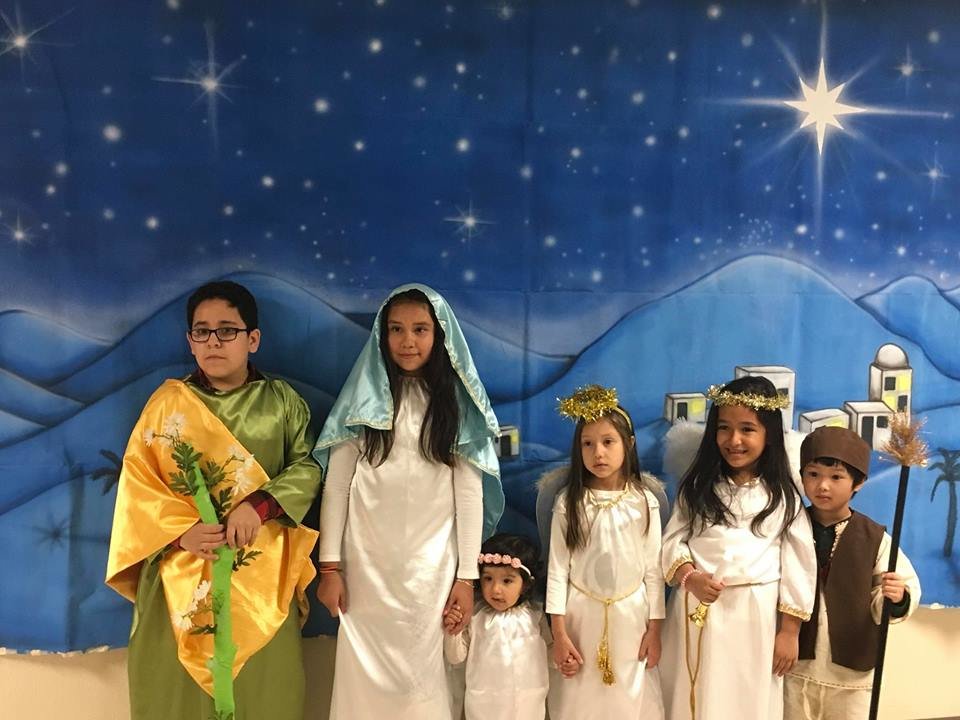“Las Posadas” — On the road with the Holy Family
The search for shelter, warmth, safety and hospitality is as old as humanity.
So it may not have seemed extraordinary for a man and his wife, about to give birth, to crisscross the streets of a strange village late at night, knocking on barred doors in the hope of finding a place to rest and give the baby a proper welcome into this world.
The shreds of compassion and hospitality they finally encountered left them quartered with livestock in what somehow became a sufficient birthplace for the Word Made Flesh, the Savior of all humankind.
That is the story not only of how the Son of God first set foot upon the earth, but of how He takes up residence every day in the hearts and minds and communities of the people He came to save.
All who hear the Gospel are innkeepers who must decide whether to make room for Him.
That is the basis for a time-honored Advent tradition that is observed each year in millions of households in this hemisphere.
“Las Posadas” — the word means “The Inns” in Spanish — is a communal celebration that takes place throughout most Latin American countries in the nine days leading up to Christmas.
“It is a tradition of reenacting Mary and Joseph’s long and frustrating search for a place to rest and to have a baby,” stated Enrique Castro, diocesan director of Hispanic and Cross-Cultural Ministries and executive director of faith formation, including marriage preparation and family life.
Rooted in movement and active participation, Las Posadas appeals to people of all ages, especially children.
Each evening, participants carrying a Nativity scene and go from home to home, knocking on doors and singing.
“Those outside walking represent Mary, Joseph and Jesus going and trying to find a place to rest,” said Mr. Castro.
At each, they experience rejection, just as they did in Bethlehem 2,000 years ago.
“They do this until they get to a house where they are welcome,” Mr. Castro stated. “They open their doors and let them in.”
Once inside, people venerate an image of Jesus while raising their prayer toward heaven: “This Christmas, Jesus, I offer You room in the inn of my heart. Make it a manger where You can be born.”
It is a celebration that combines hospitality and reverence, Mr. Castro noted.
“It is also a time of prayer as we reflect on the uncertainty of Mary and Joseph as they desperately search for a place to give birth to their child, the Son of God,” he said.
In addition, participants reflect on the joy and awe of the shepherds, who, guided by the angel’s tiding, rushed from the fields into Bethlehem to adore their newborn Savior.
Most parishes with large Hispanic populations in the diocese offer some sort of communal observance of Las Posadas.
People of all ethnic, linguistic and cultural traditions are urged to participate in this tradition communally or in the home, as an aid to their preparation for Christmas.
Children are especially encouraged to take part, to help them understand and stay focused on the true meaning of Christmas.
“Together on the journey”
This year, Mr. Castro has distributed to parishes throughout the diocese several resources — some in Spanish, some in English, some bilingual — for observing and celebrating Las Posadas.
One contains Scripture passages, prayers and meditations for each of the nine days leading up to Christmas, beginning on Dec. 16.
Another is a solemn prayer service for immigrants from Latin America, with the theme, “Estamos juntos en el camino” — “We are together on the journey.”
In words and movement, those who take part in this service stand in solidarity with the Holy Family and with all whose circumstances have them “on the move.”
Many who celebrate Las Posadas have experienced some aspect of the Holy Family’s journey — either looking for room at the inn or fleeing to another country for theirs and their children’s safety — or have friends or relatives who have.
This and other prayer resources for Las Posadas have been posted on the diocese’s Hispanic Ministry Facebook page which can be found at “Ministerio Hispano — Diócesis de JC.”







